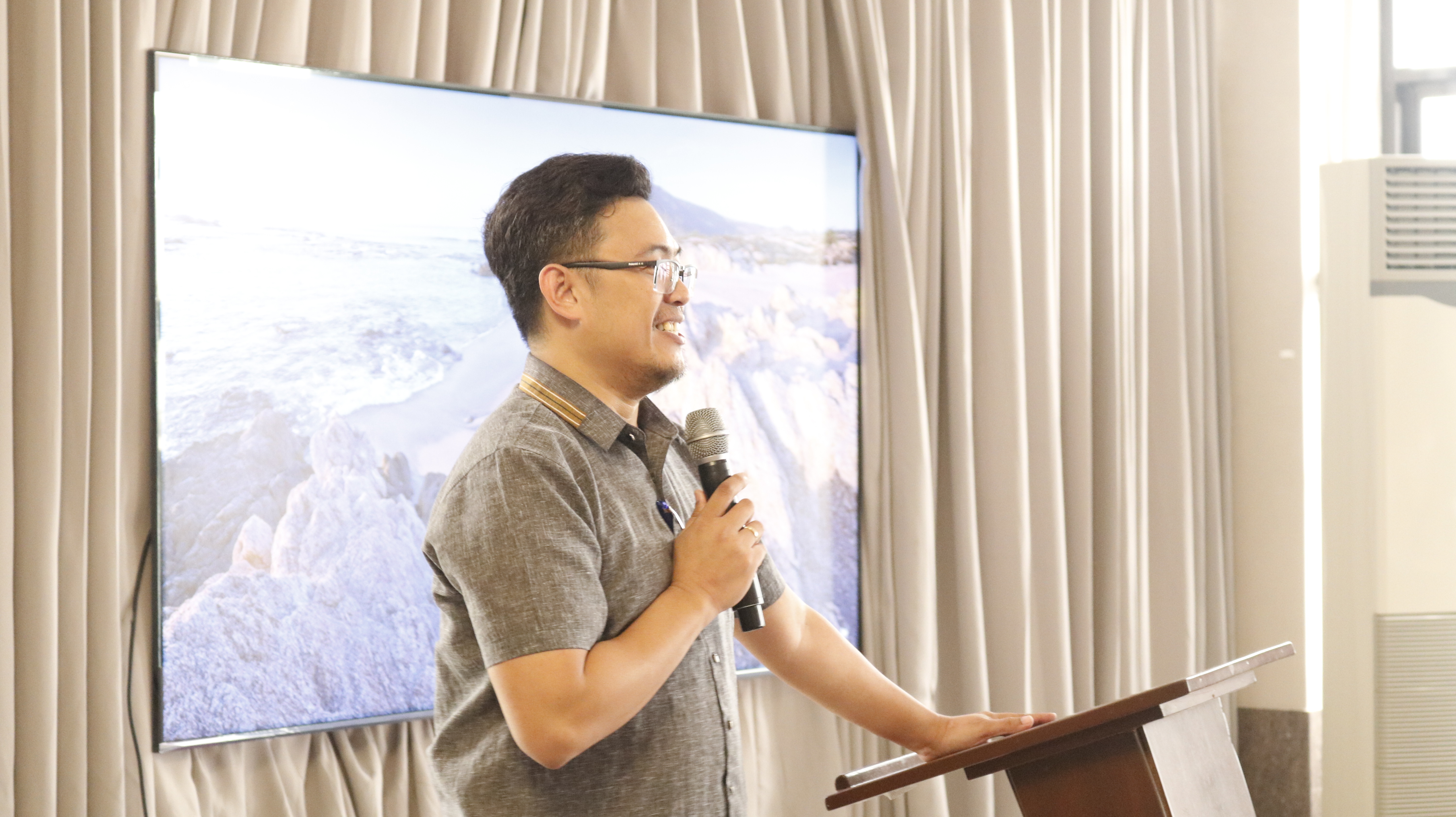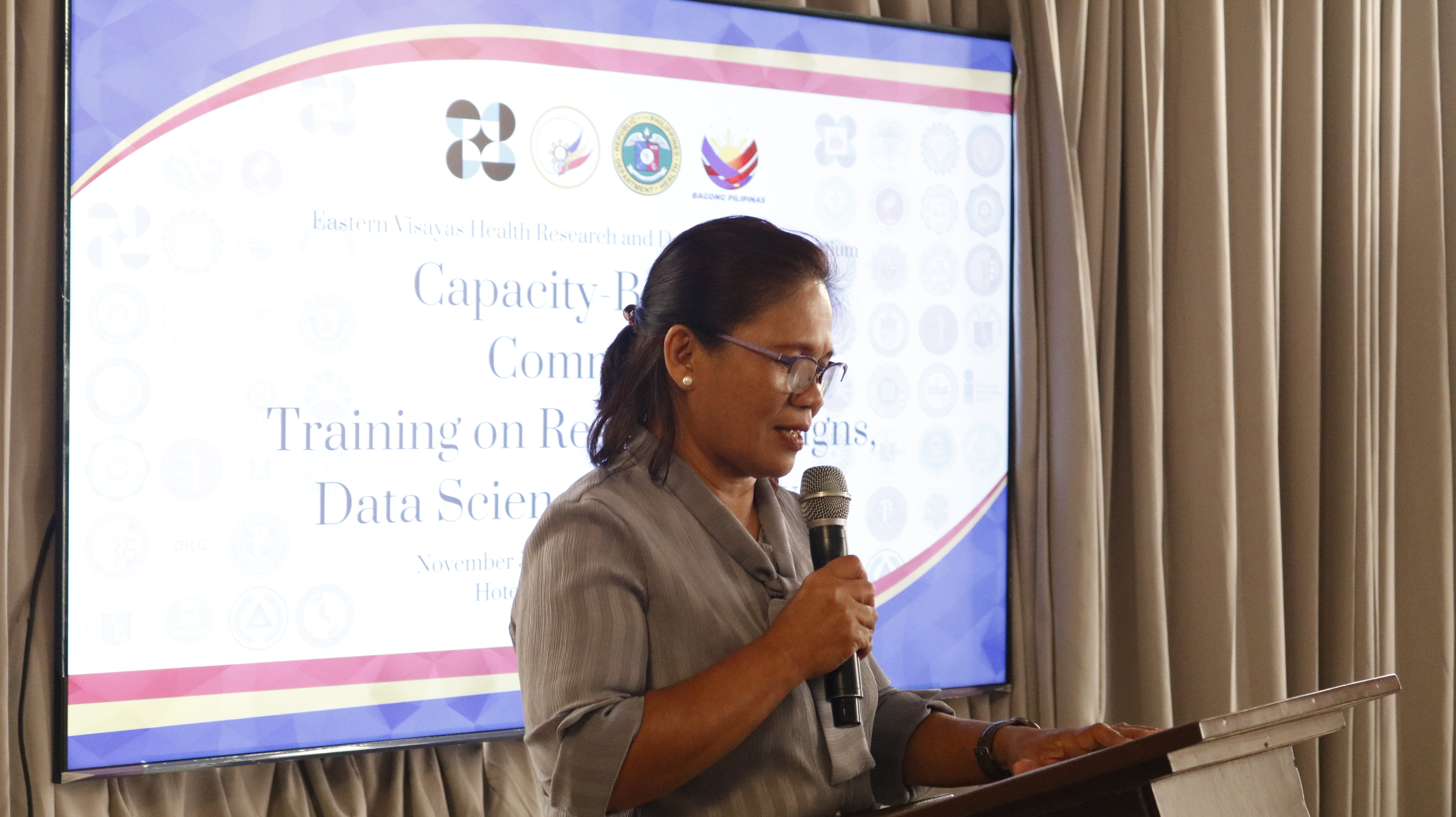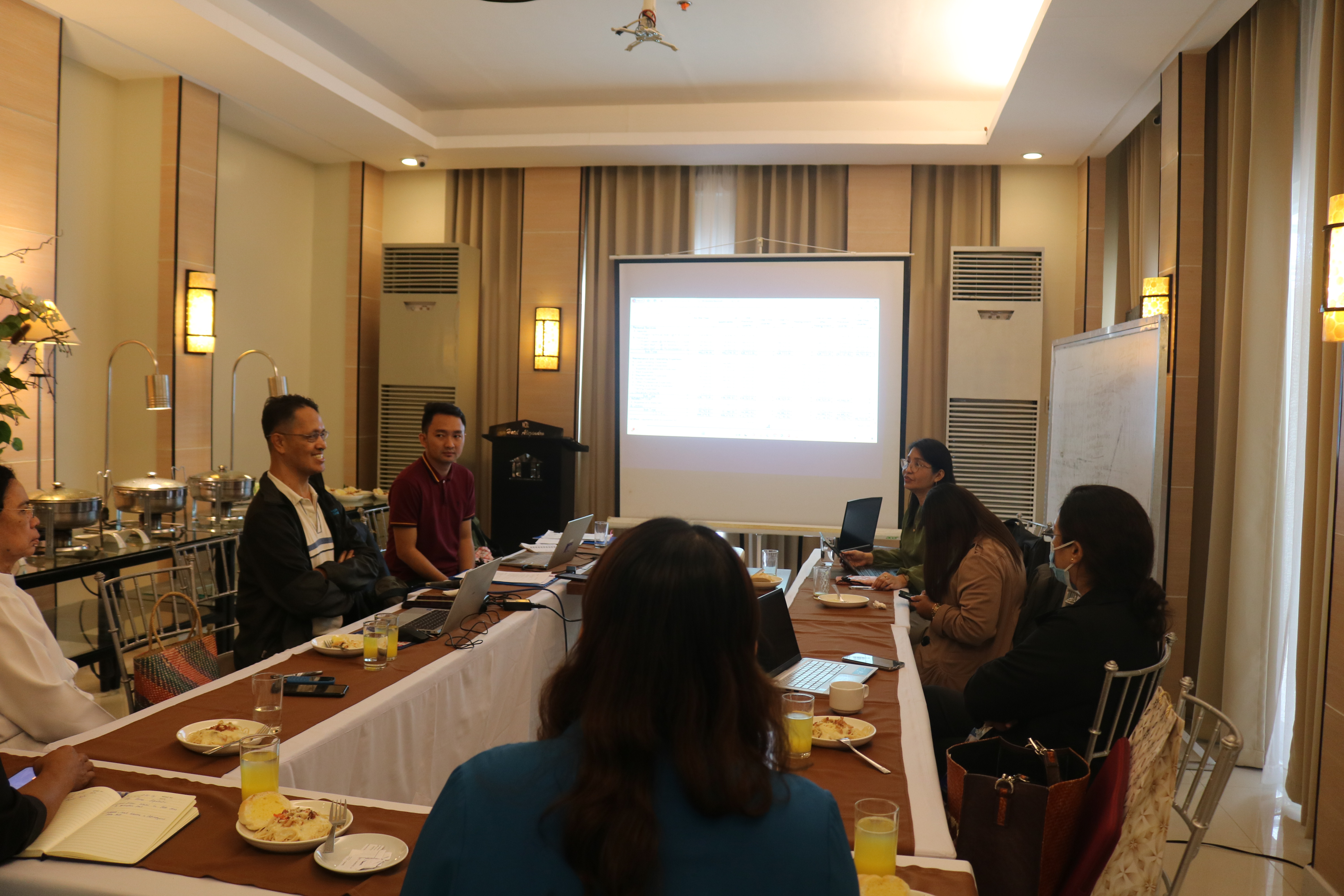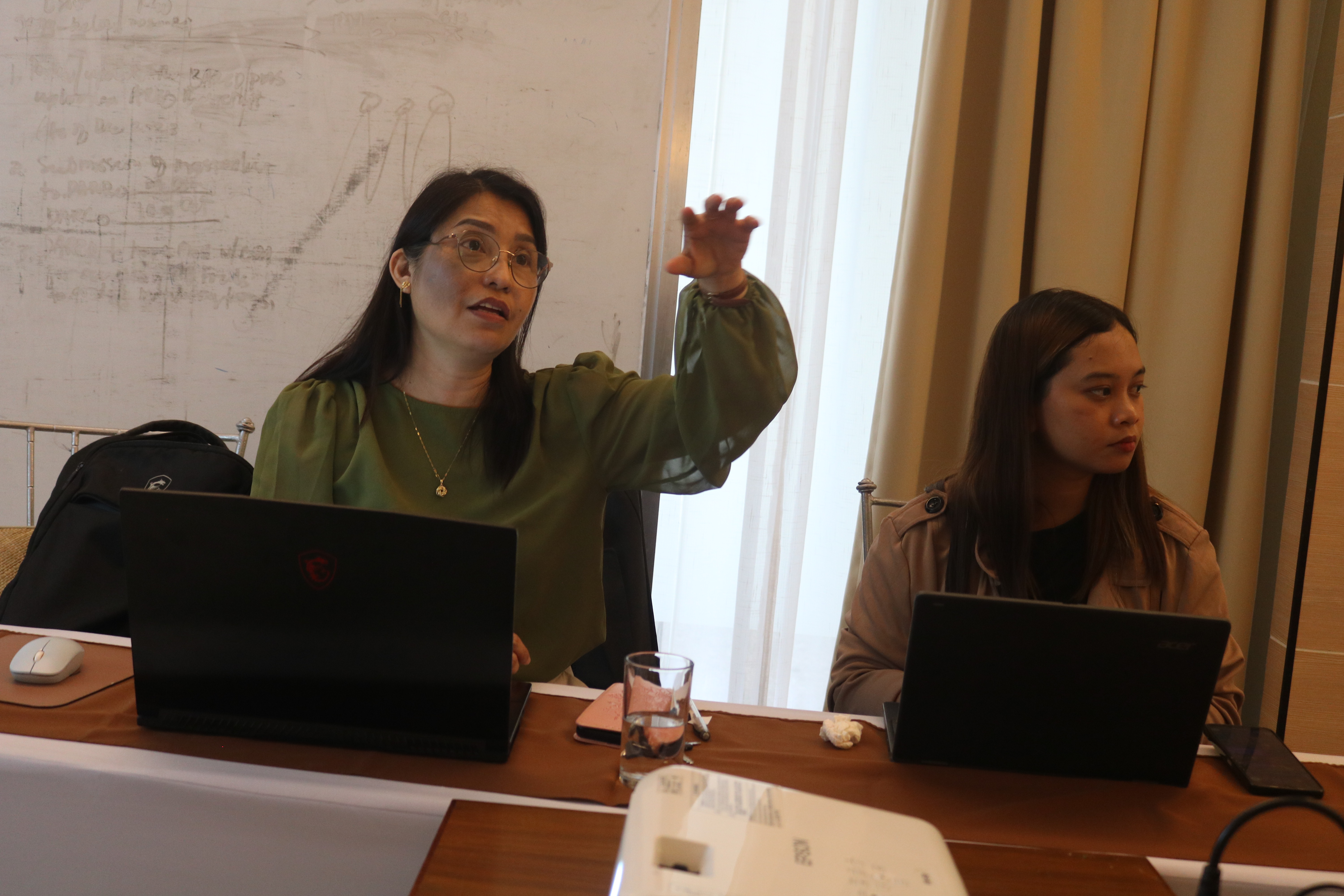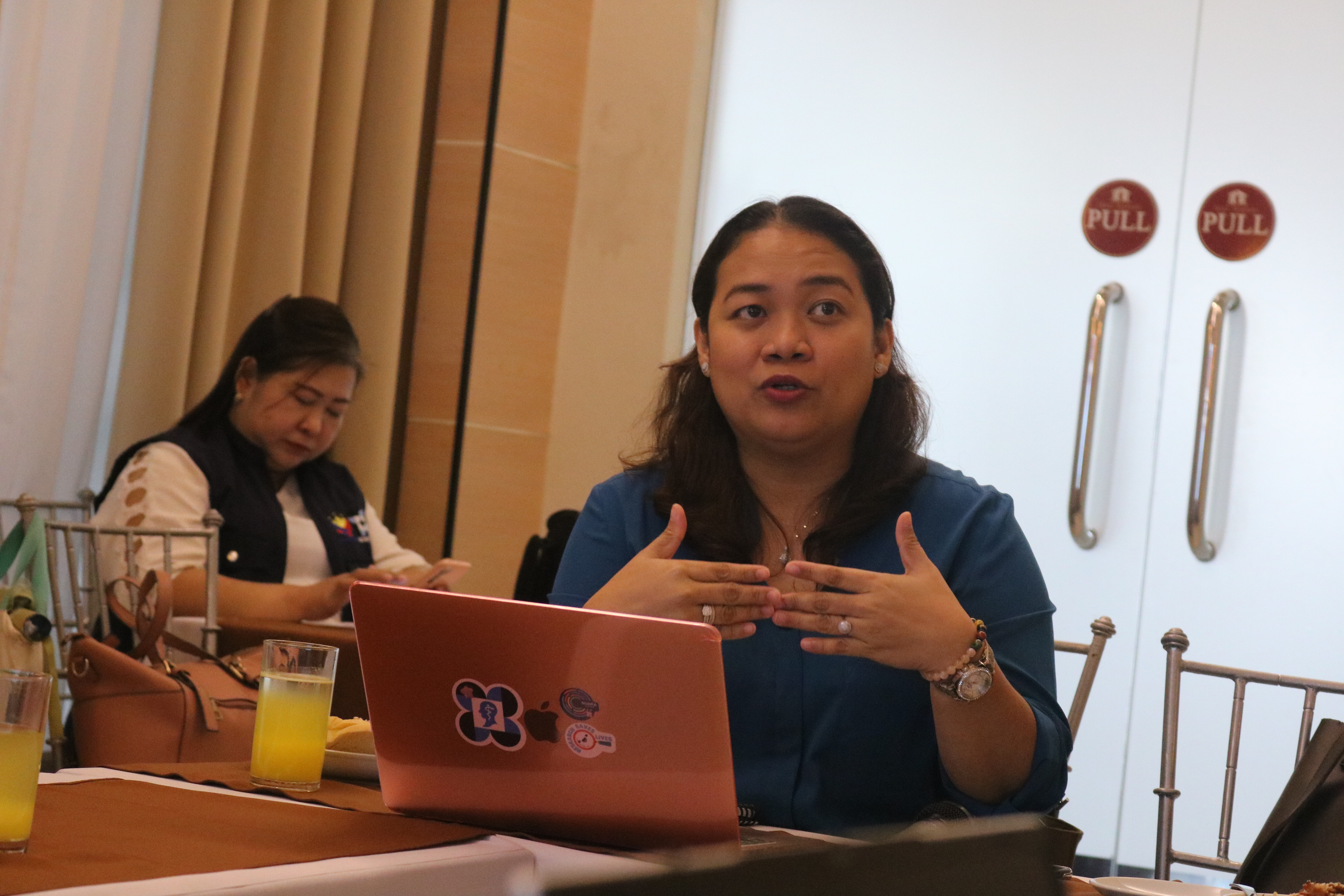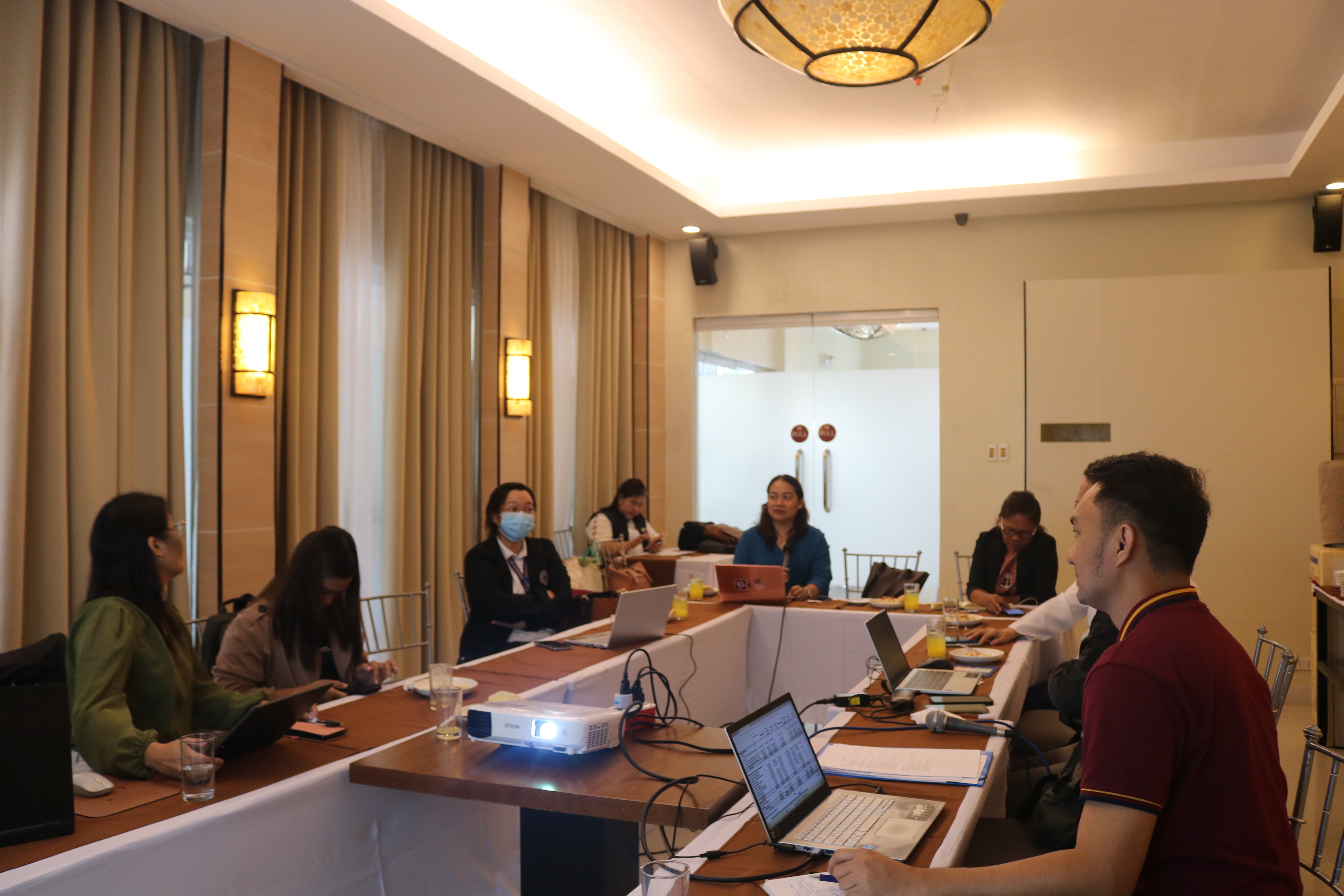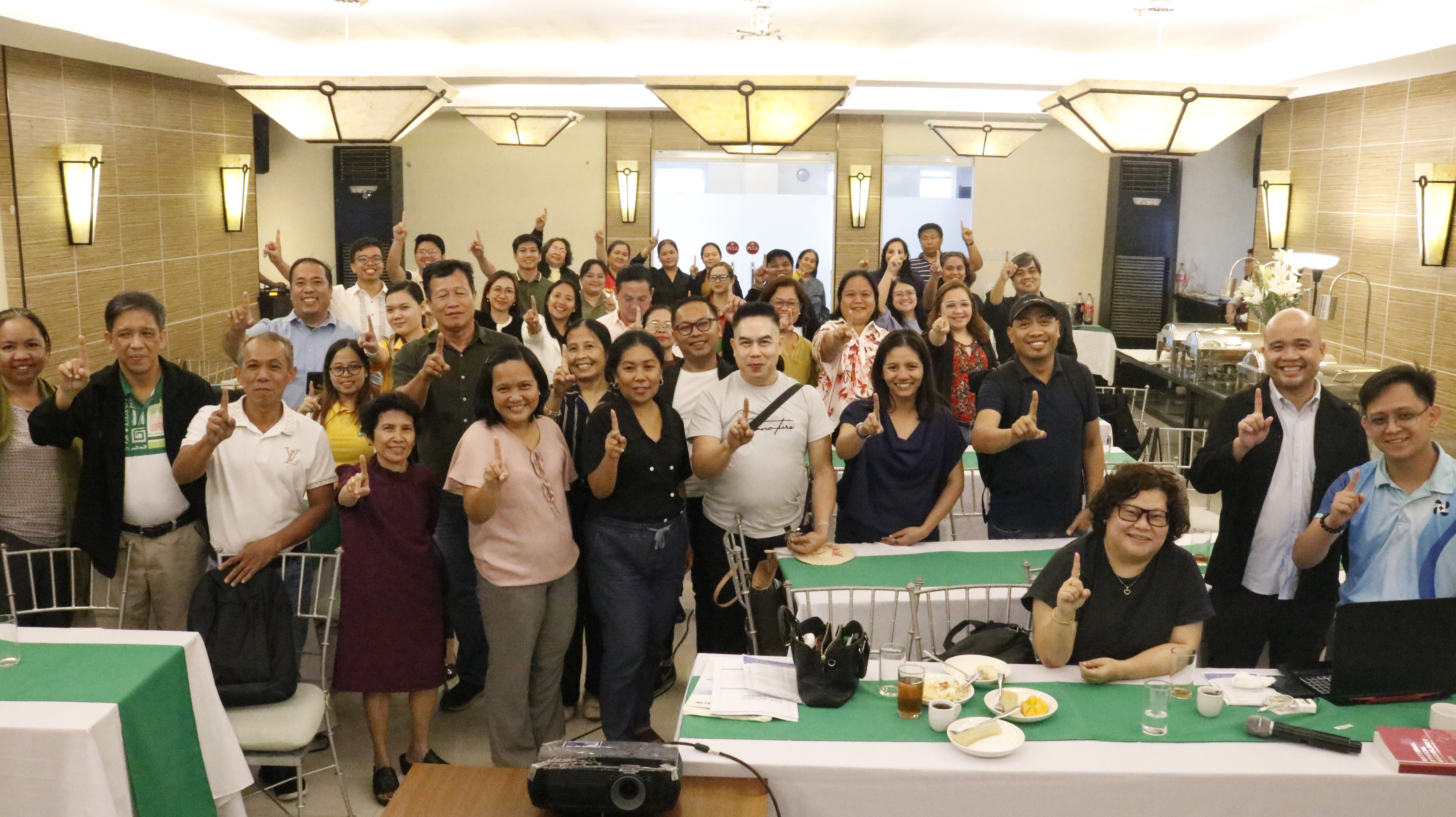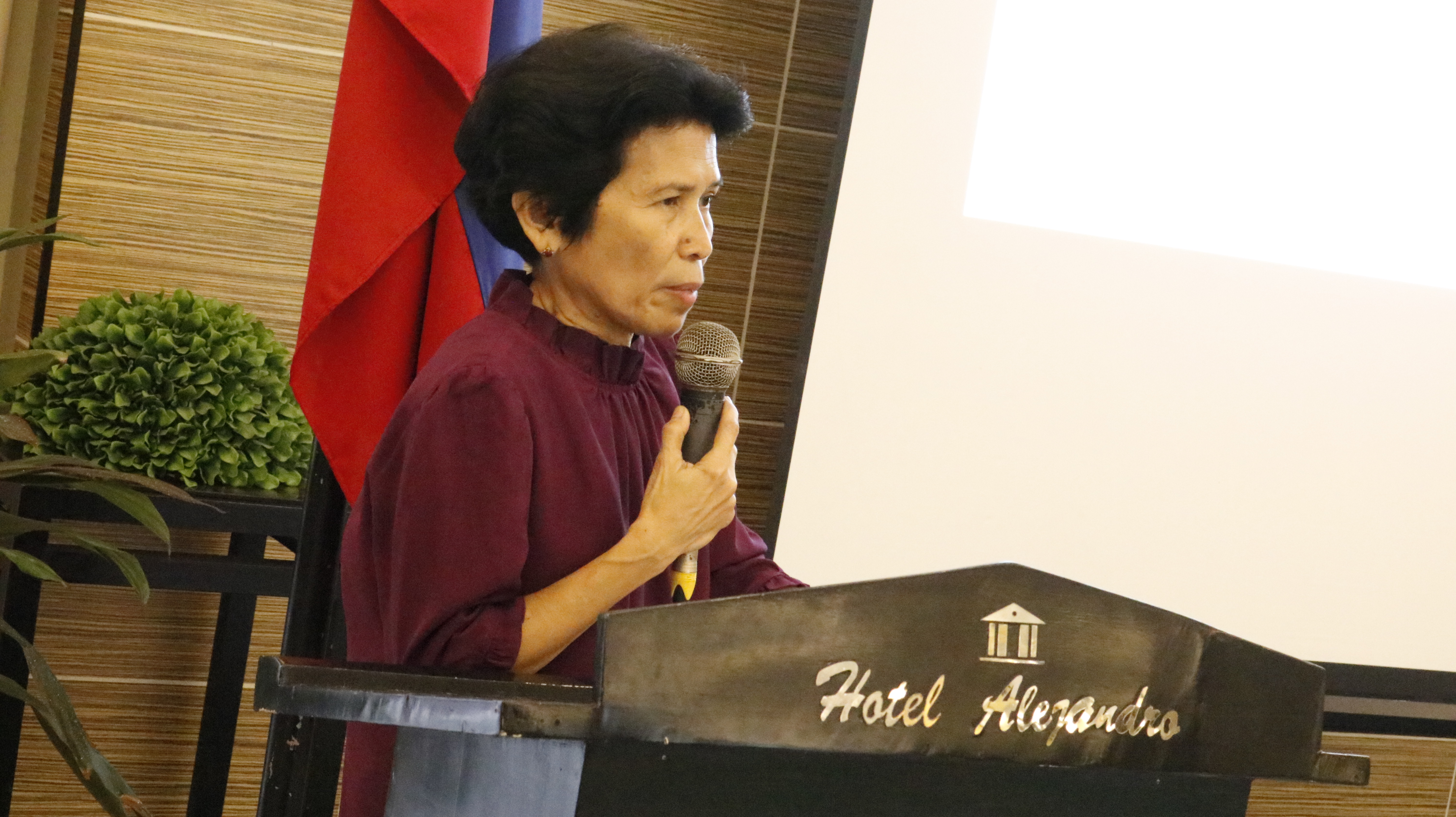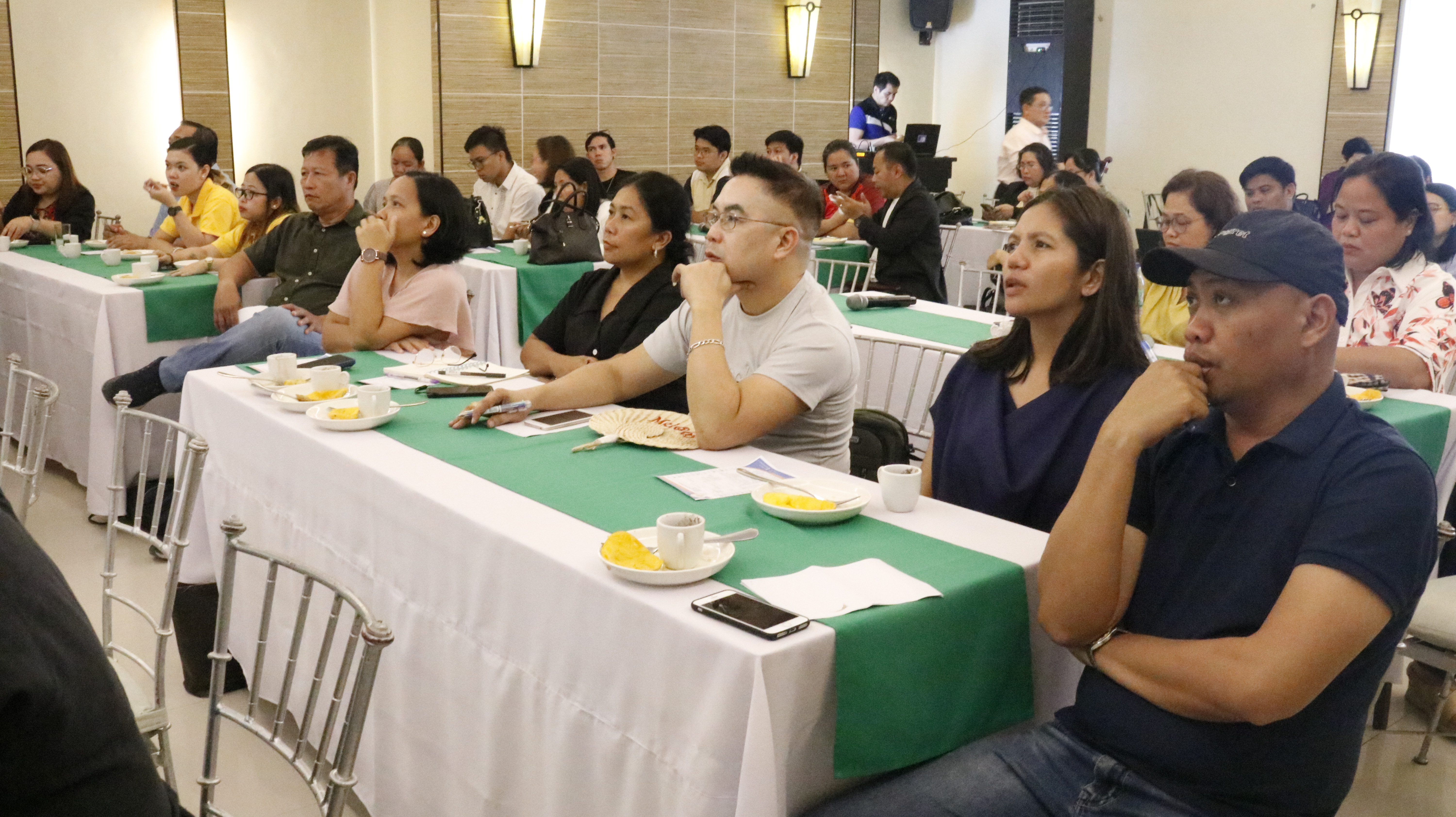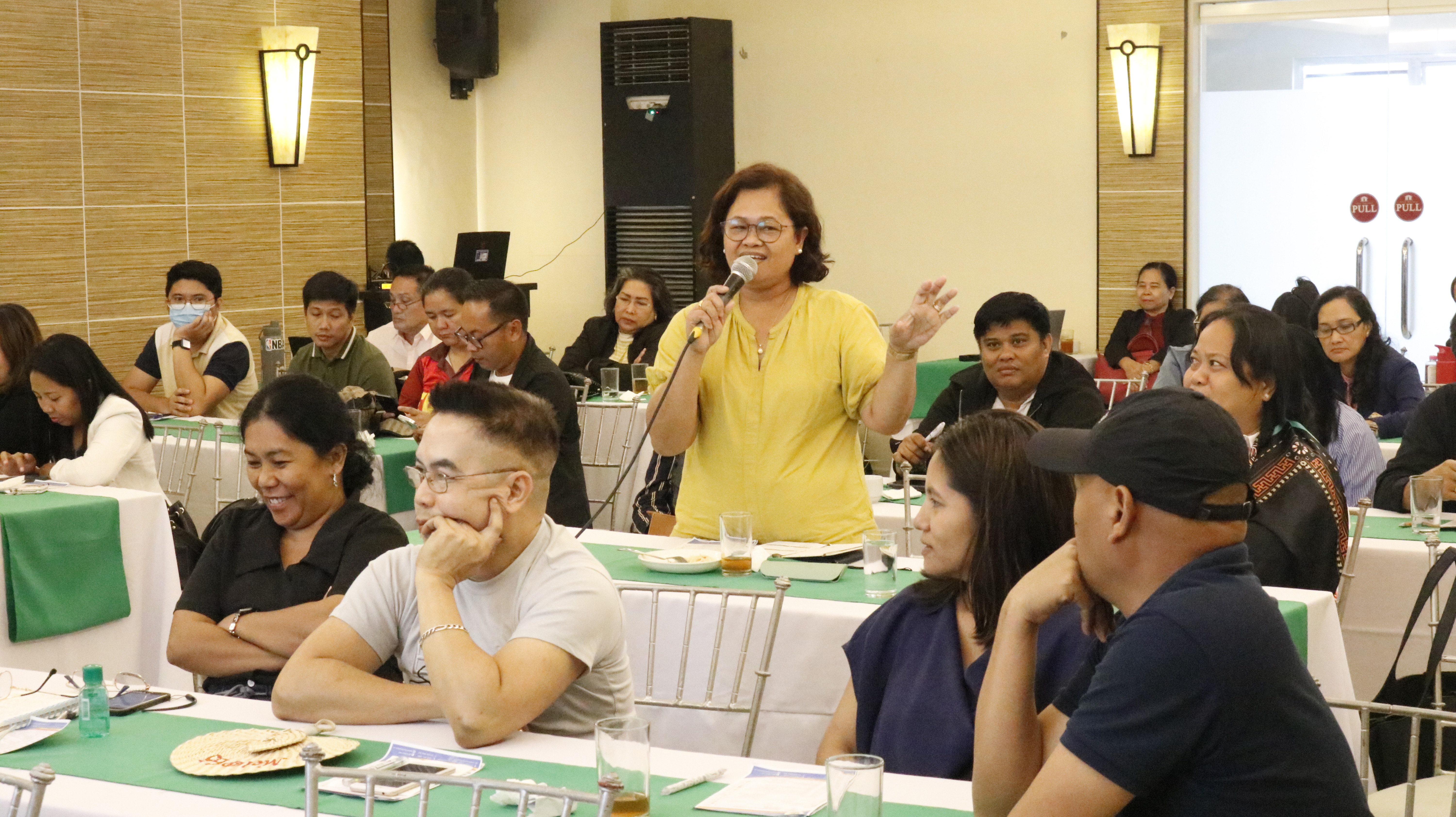Featured Videos
Latest News
- Details
- Written by Lovely Rose A. Bolante, Project Technical Staff-OEDR-SSU
- Category: Latest News
- Hits: 429
The Eastern Visayas Health Research and Development Consortium through the Capacity Building Committee (EVHRDC-CBC) kicked off its “Training on Research Designs, Data Science & Analytics” today at Hotel de Fides in Tacloban City for three days from November 5 to November 7, 2024.
This initiative attracted a diverse audience of research enthusiasts from various universities, colleges, and agencies in Samar and Leyte. Scholars and professionals, including medical doctors, research coordinators, research staff, heads of research and innovation/extension units, faculty researchers, and faculty members, gathered to delve into the research methodologies, data science, and analytics, eager to enhance their knowledge and skills in these critical areas.
The event commenced with an insightful session on "Qualitative Research Design," featuring a comprehensive overview/review of qualitative research designs, phenomenology, and case study methodologies. Dr. Las Johansen B. Caluza, the resource person leading the discussion, captivated the audience with insights and perspectives that set a strong foundation for the days ahead. As the training unfolds over the next two days, attendees can look forward to a deep dive into the intricacies of research methodologies, data science, and analytics, gaining valuable knowledge to further their academic and research pursuits.
Stay tuned for more updates as the Eastern Visayas Health Research and Development Consortium continues to foster a culture of research excellence and innovation in the region.
- Details
- Written by Jovy Dia R. Saniel, Biliran Province State University, Research Utilization Committee
- Category: Latest News
- Hits: 641
Biliran, Philippines – On October 26, 2024, the Philippine Council for Health Research and Development (PCHRD), in collaboration with the Eastern Visayas Health Research and Development Consortium (EVHRDC) Region 8, conducted an informative HERDIN "Health Research and Development Information Network" orientation at the Biliran Province State University (BiPSU) School of Nursing and Health Sciences (SNHS). This event was participated by the BS Nursing students alongside the school’s faculty members.
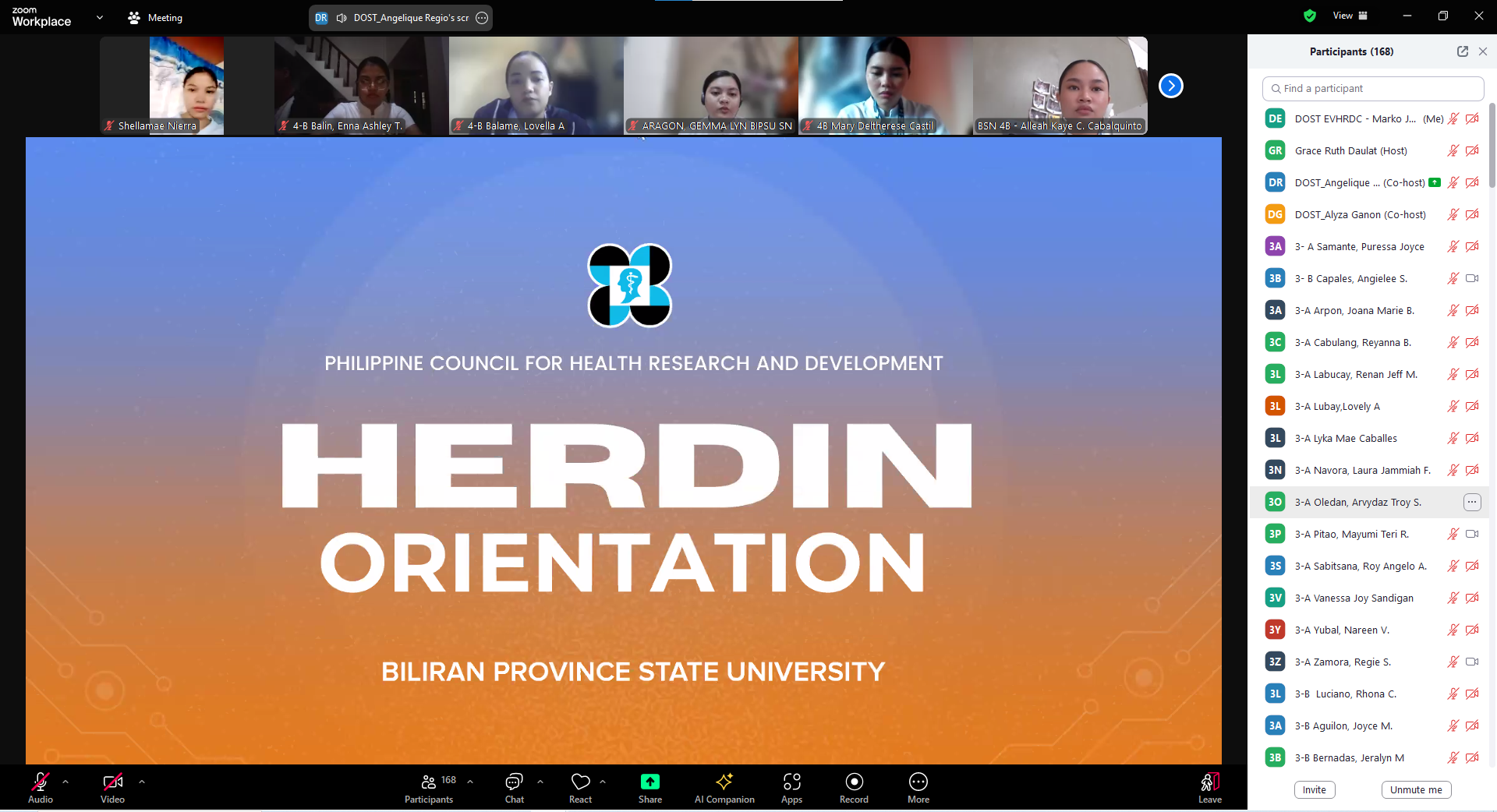
A key focus of the orientation was to guide students through the process of registering and creating individual HERDIN accounts, they were given a walkthrough on account creation and navigation, which is a crucial step in streamlining access to health research in the Philippines.
The event also emphasized the significant role of BiPSU in managing and overseeing student and faculty accounts on the HERDIN platform, ensuring accessibility and compliance with institutional policies. An important aspect of the orientation was the plan to initialize the Memorandum of Understanding (MOU) between BiPSU and PCHRD, which highlights the university’s commitment to fostering a research-oriented environment and enhancing students’ engagement with evidence-based practice.
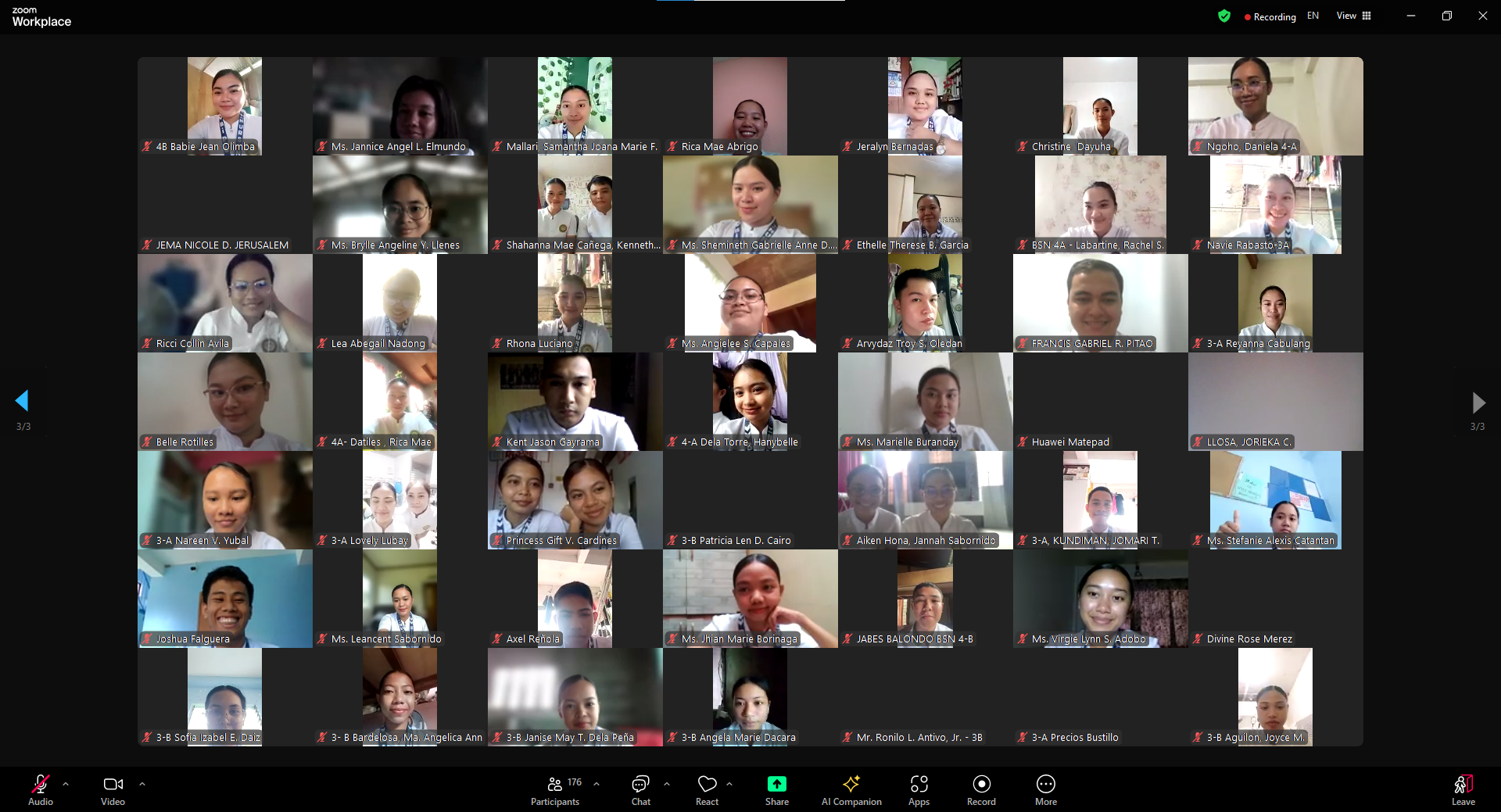
The SNHS Dean, faculty, and the University President Dr. Victor C. Canezo Jr., expressed their gratitude to the PCHRD and EVHRDC for this collaboration, recognizing it as a valuable step in empowering nursing students with essential research skills. The MOU will signify BiPSU’s dedication to supporting the research growth and professional readiness of its students in preparing them to become leaders in evidence-based healthcare.
- Details
- Written by Consuelo B. Alarcon
- Category: Latest News
- Hits: 1883
TACLOBAN CITY (PIA) — The Department of Health Eastern Visayas Center for Health Development (DOH-EVCHD) has cautioned the public about the spike in dengue cases in the region.
From January 1 to July 27, 2024, there were 5,730 reported cases and 13 deaths, according to the DOH-Regional Epidemiology and Surveillance Unit report.
Out of these cases, the Leyte Province recorded 1,761 cases, the highest number of cases in the region, with two deaths.
Samar follows with 1,626 cases and eight deaths; Southern Leyte with 785 cases; Eastern Samar with 542 cases and two deaths; Northern Samar with 283 cases and one death; Biliran with 86 cases; Ormoc City with 387 cases and Tacloban City with 260 cases.
This marks a 152 percent increase compared to the same period in 2023, when there were 2,273 cases and seven deaths.
Due to this spike, the DOH-8 has restated its call, emphasizing that the 4-step strategy effectively combats dengue fever.
These steps include searching for and destroying mosquito breeding grounds by removing stagnant water and their containers, such as open cans and bottles.
This includes self-protection measures such as using insect repellent and wearing long-sleeved shirts and long pants.
In addition, seeking early consultation with a doctor if someone has a fever or other symptoms and supporting fogging operations in hotspot areas. (AAC/CBA, PIA-8)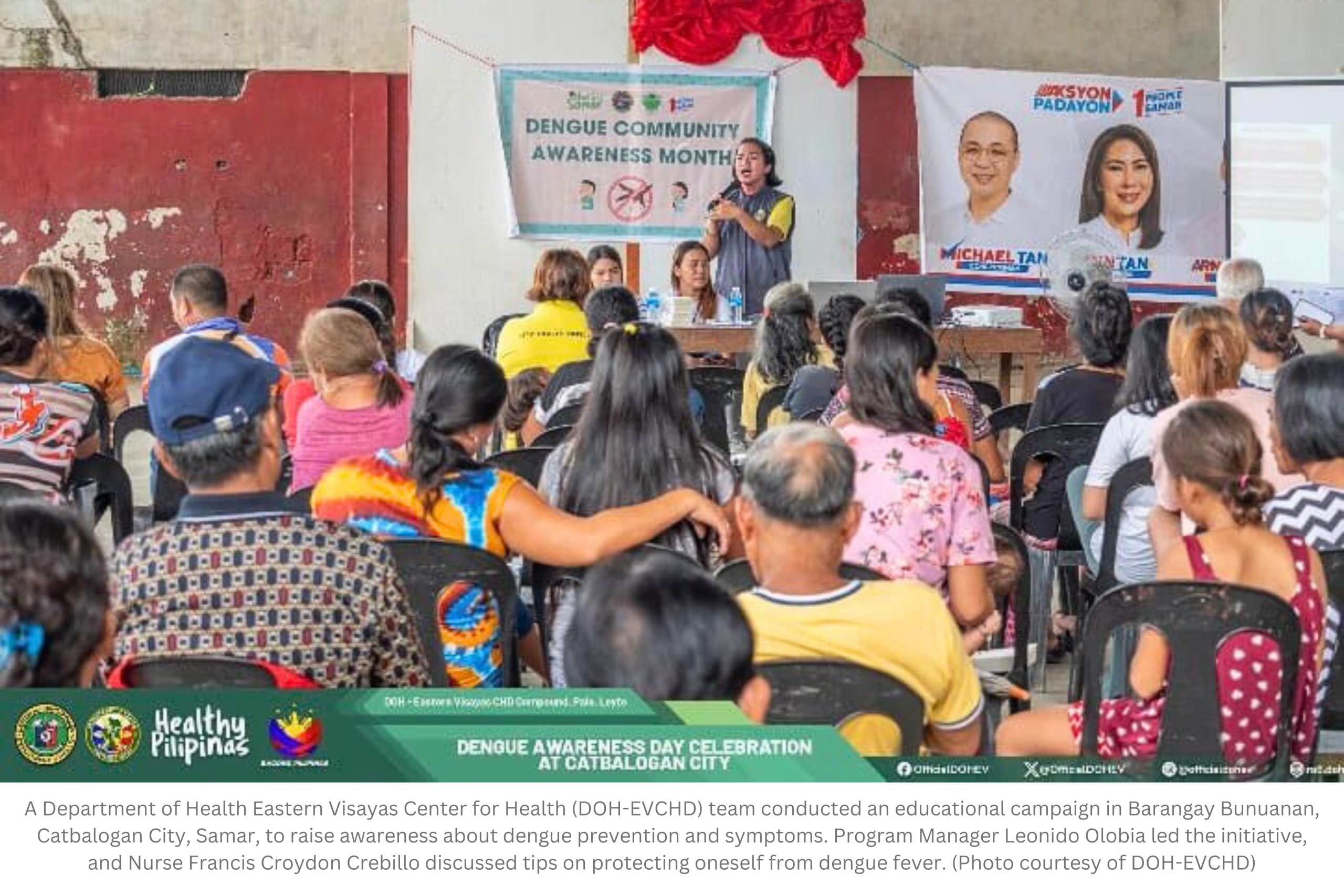
- Details
- Written by Lovely Rose A. Bolante, Project Technical Staff-SSU, Sherrie Ann C. Labid, RUC Chair, EDR-SSU
- Category: Latest News
- Hits: 605
September 25, 2024 - Tacloban City, Eastern Visayas
In a conscientious effort to uphold transparency and accountability in research endeavors, the Eastern Visayas Health Research and Development Consortium (EVHRDC) - Research Management Committee (RMC) convened at Hotel Alejandro in Tacloban City today for a pivotal progress reporting session.
Among the project leaders present were Dr. Sherrie Ann C. Labid, Executive Director for Research at Samar State University, overseeing the DOST-funded project "Factors Associated with Adverse Pregnancy Outcomes among Deliveries in Healthcare Facilities in the Province of Samar," and Dr. Janet Alexis de los Santos from the Visayas State University, for the project "A Descriptive Study on the Knowledge, Attitude, Perceived Behaviors toward Suspected or Confirmed HIV/AIDS clients and HIV Stigma of Barangay Health Workers among Health Facilities in Leyte." Their expertise and dedication exemplified the consortium's ethos of excellence and innovation in health research.
The event was organized by the EVHRDC headed by the Research and Management Committee Chair/ DOH-EV CHD Research Program Coordinator, Mr. Leonido P. Olobia. Accompanying him were RMC members, including Dr. Catherine O. Iglesias, ES II, Sr. John Mary P. Fornillos, Dean of Graduate Studies/Research Coordinator of Holy Infant College of Tacloban City, Inc., and RMC Secretariat Mr. Jeremy V. Jusay. Dr. Lucia P. Dauz, the Director of EVHRDC DOST Region VIII, also participated in the activity. Their collective presence, insights, and suggestions highlighted the collaborative ethos driving healthcare and research excellence in Eastern Visayas.
The progress reporting session is a testament to the EVHRDC-RMC's unwavering dedication to advancing the frontiers of healthcare and research in Eastern Visayas, setting a high standard for excellence and accountability in pursuing scientific advancement.
- Details
- Written by Geselle Frances P. Zeta, NEDA 8, Research Utilization Committee
- Category: Latest News
- Hits: 702
Tacloban City – The Eastern Visayas Health Research and Development Consortium-Ethics Review Committee (EVHRDC-ERC), accredited by the Philippine Health Research Ethics Board (PHREB) as a Level II Research Ethics Committee, successfully hosted a lecture on ethics in health research on 22 August 2024.
The lecture aimed to educate member institutions, prospective members of institutional ethics review committees, as well as professional and student researchers in the region. It focused on the provisions of the EVHRDC-ERC's Standard Operating Procedures (SOP) and highlighted the critical importance of securing ethical clearance for research projects involving human participants.
In her opening remarks, Dr. Jane R. Borrinaga, Chairperson of the EVHRDC-ERC, underscored the importance of the lecture, stating, "This lecture is crucial for promoting a culture of ethical research practices in Eastern Visayas, ensuring that research involving human participants adheres to the highest standards."
The lecture featured a range of topics delivered by the EVHRDC-ERC members, including:
History and Overview of National and International Guidelines in Health Research Ethics - Engr. Florentino L. Quiñones
Good Clinical Practice History and Introduction - Dr. Jose Carlo K. Del Pilar
Elements of Informed Consent - Ms. Noreen S. Buhat
Ethical Considerations in Protocol Development - Dr. Jane R. Borrinaga
Risk Assessment in Research - Dr. Jane R. Borrinaga
Ethical Issues in Social Science Research - Dr. Sarah B. Delorino
Conflict of Interest - Atty. Alma Sonia Sanchez-Danday
Applying the Data Privacy Act and Confidentiality of Health Information - Atty. Alma Sonia Sanchez-Danday
The ERC, PHREB SOP, and Conduct of Ethical Clearance - Dr. Jane R. Borrinaga
Post-Approval Reports and the Role of Primary Investigators - Ms. Erleta S. Pinero
Application for EVHRDC Ethics Review - Mr. Raymond G. Campo
By providing a comprehensive overview of these key topics, the EVHRDC-ERC reinforced the essential role of ethics in health research. The discussions underscored the need for adherence to ethical guidelines and the responsibilities of researchers and ethics committees to maintain high standards in all research activities involving human participants.
The event saw enthusiastic participation, with 50 attendees present onsite and an additional 86 joining virtually. Attendees received valuable insights into ethical guidelines and standards essential for protecting the rights, safety, and well-being of human subjects in health research.

